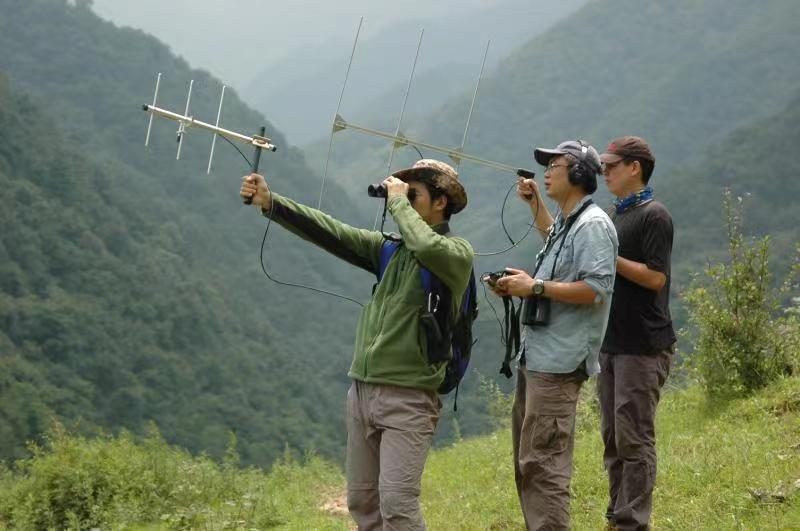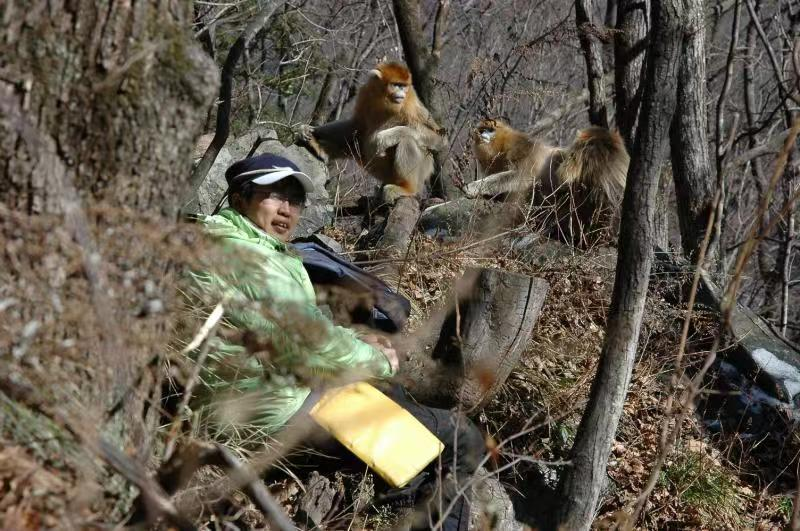On June 2nd,Sciencemagazine published the latest research findings of the Northwest University Golden Monkey Research Team in an article titledAdaptions to a Cold Climate Promoted Social Evolution in Asian Colobine Principles. This article systematically reveals the mystery of primate social evolution for the first time.
The co-lead authors of the paper are Qi Xiaoguang, a professor of the School of Life Sciences at Northwest University, and postdoctoral fellows Wu Jinwei and Zhao Lan. The co-corresponding authors are Professor Li Baoguo and Qi Xiaoguang from Northwest University; Wu Dongdong, a researcher at the Kunming Institute of Zoology, Chinese Academy of Sciences; and Professor Cyril C. Grueter from the University of Western Australia in Australia.
Northwest University, one of China’s top universities, is headquartered in Xi’an, Shaanxi province, which is the main habitat of golden monkeys. The university served as the lead author unit for the research, which integrated multidisciplinary methods, such as animal behavior, ecology, geology and comparative genomics. Through this research, the evolution process, dynamics and genetic basis of the complex social system of the Asian langur over an 8million-year period were fully revealed.
Professor Qi presented the 'three-act' social evolution history of Asian langur, based on a phylogenetic analysis of representative species from seven genera and the reconstruction of their ancestors' social systems. The study showed a tendency for langur species living in colder environments to form larger communities. It also identified two social aggregations that occurred during the late Miocene cold period and the Pleistocene Quaternary glacial period. These findings suggest that cold events may have played a role in driving community aggregation.
"This study presents a systematic explanation of our team's 2014 hypothesis, the 'Asian Origin - Aggregation', and enhances our previously limited understanding of the evolutionary chemistry of animal social systems beyond the 'African Origin - Division' explanation. Our findings establish the Asian langur as a novel model for investigating social system evolution," explained Qi.
Simultaneously, this accomplishment has established a novel research paradigm known as the "behavior ecology genome".

Qi Xiaoguang (seated in the center), Li Baoguo (standing on the left) lead the research team in their investigations in the laboratory. [Photo provided to chinadaily.com.cn]

Qi Xiaoguang (in the middle) and his team are monitoring the life trajectory of golden monkeys in the wild. [Photo provided to chinadaily.com.cn]

Qi Xiaoguang closely observes the behavior of golden monkeys in the wild. [Photo provided to chinadaily.com.cn]
According to theSciencereviewer, the author’s interdisciplinary approach comprehensively traces the social evolution history of Asian langurs, while offering an analysis of their ecological causes and genetic basis. This unprecedented research on primates and vertebrates opens up a new avenue in the field of social evolution.
Additionally, Qi Xiaoguang, serving as a co-corresponding author, wrote another article titledPhylogenetic Analyses Offer Insights into Early Evolution, which was concurrently published inScience.
Guo Lihong, president of Northwest University, commented that the breakthrough made in this scientific research underscores the forward-thinking spirit of scientists at Northwest University and highlights the invaluable contributions of the university's wisdom and expertise to the scientific community.
原文链接:http://education.chinadaily.com.cn/2023-06/05/c_892438.htm